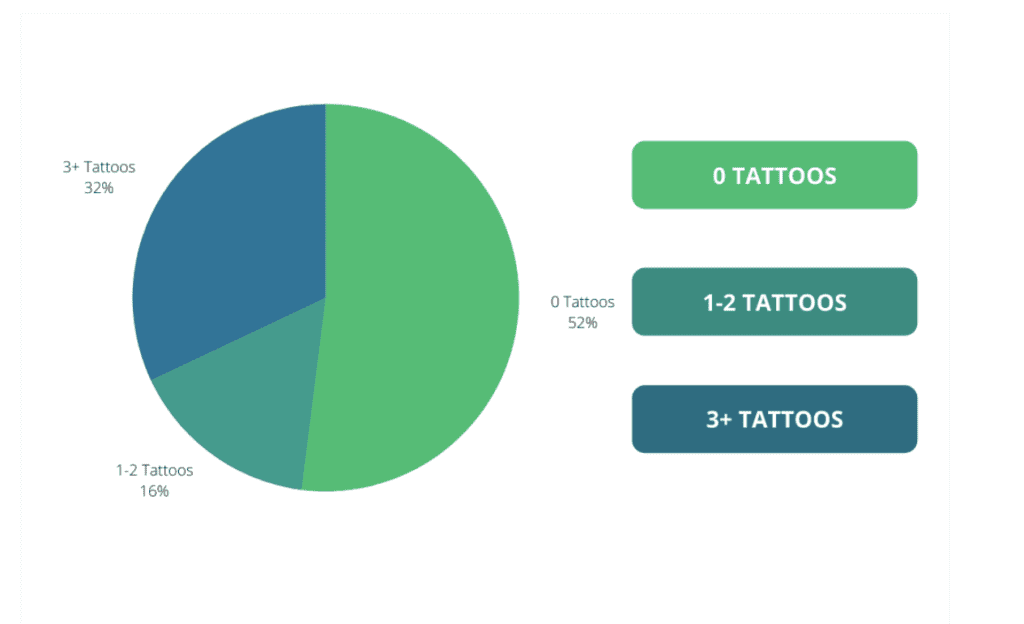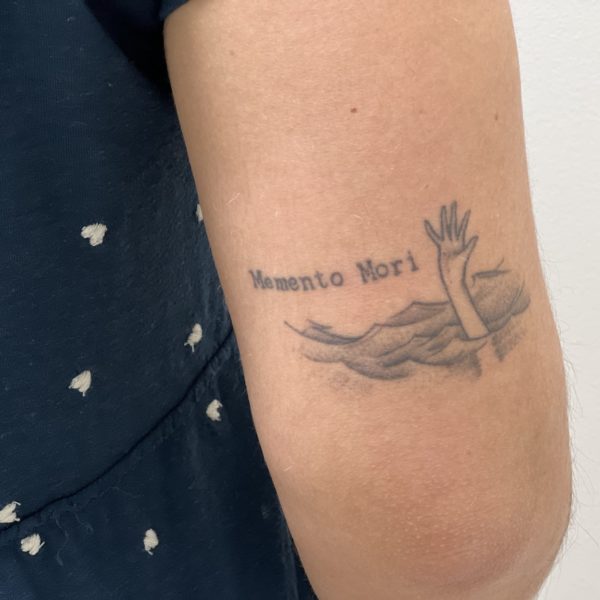Tattoos and Self-Expression in Company Culture
Tattoos are one of the oldest and most popular forms of artistic self-expression. However, corporate attitudes towards tattoos and tattooed individuals have changed significantly in recent years. The stigma associated with tattoos is quickly becoming a thing of the past as companies begin to prioritize their culture and embrace employee self-expression.
History of Tattoos
Tattooing is an ancient art form that has been practiced for thousands of years. It is considered one of the oldest ways humans express their identity and individuality. The earliest evidence of human tattooing was uncovered in 1991 with the discovery of “Ötzi the Iceman,” a 5,300-year-old mummy found frozen in the Italian Alps and covered in tattoos. According to Smithsonian Magazine, before this incredible discovery, the earliest examples of tattooing were found on the bodies of ancient Egyptian female mummies dated to c. 2000 B.C.
There is a prevalence of tattooing throughout many different ancient civilizations and cultures. In a recent Inverse article, Allison Hawn, author and tattoo historian, asserts that it is impossible for any single culture to “lay the claim to first inventing the art form,” as tattooing practices were commonplace throughout most of the ancient world. Although the reasoning as to why tattooing was practiced differs across these cultures, the majority of the scientific community believe the ancient civilizations who tattooed themselves did so for a reason associated with identity and self-expression.
Despite the stigma that has long been associated with them, tattoos are also a common form of self-expression. In recent years, the number of people who have tattoos has spiked. According to an Ipsos poll from 2019, the number of people who reported having at least one tattoo climbed 9% in only seven years. 30% of Americans have at least one tattoo, up from 21% in 2012. A recent article from CompareCamp states that older millennials are the most likely to get a tattoo, as 39% of adults aged 30-39 have at least one tattoo. However, younger millennials and Gen Z are close behind, with 36% of adults aged 18-29 reporting having tattoos.

Progress: Companies Who Embrace Tattoos
Although the negative stigma associated with tattoos still exists both in and outside of the workplace, it has faded significantly. The Great Resignation has sparked a great deal of conversation surrounding the topic of company culture, self-expression, and authenticity in the workplace. As a result, the urgency and speed at which company reform is taking place has intensified over the past couple of years. Although the Great Resignation is largely responsible for this increase in intensity, it is not what initially sparked the rapid change in corporate attitudes toward self-expression. Before the COVID-19 Pandemic, many companies began prioritizing their culture to keep up with the already budding social progression that is taking place.
As companies recognize the importance of prioritizing company culture, they are embracing self-expression in the workplace. As a result, many businesses have loosened restrictions around tattoos or retired them completely. Some companies even embrace the idea of self-expression in their marketing. For example, a talent resource team manager for Lush North America told CBS that Lush often highlights their employees’ tattoos and piercings in their marketing campaigns and takes pride in creating space for employees to “express their individuality.”
Some examples of tattoo-friendly companies include Trader Joe’s, Barnes & Noble, Home Depot, Planet Fitness, Google, Anthropologie, Best Buy, FedEx, Staples, and Ticketmaster.

Why Self-Expression & Company Culture Are So Important
The prioritization of company culture and valuing authenticity and self-expression in the workplace have a positive and profound impact on both the individual employee and the company. Aneeta Rattan, Associate Professor of Organizational Behavior, and Aharon Cohen-Mohliver, Assistant Professor of Strategy and Entrepreneurship at London Business School, maintain that self-expression lays the foundation for solid company culture. Furthermore, self-expression creates an environment where employees are more likely to enjoy their work and develop strong relationships with their coworkers. This significantly reduces turnover risk and is especially important now, as job candidates actively seek positions with organizations who have successfully cultivated a solid company culture.
Tattoos are an excellent form of self-expression. Lifting policies on tattoos and other forms of body art can be the first step to cultivating a more inclusive, engaging, and healthy company culture overall. When employees feel safe to be their most authentic selves at work, it can increase their job satisfaction, motivation, and productivity.
Tattoos at Online Optimism
At Online Optimism, we take pride in our company culture and embrace self-expression. We have a casual dress code and do not have any restrictive policies surrounding artistic forms of self-expression. Similar to the cosmetic company Lush, Online Optimism delights in creating a work environment that encourages its employees to express their individuality.
Online Optimism cultivates a lively and engaging company culture by celebrating obscure holidays. For example, on February 1st, Online Optimism celebrated International Face and Body Art Day. According to a survey, 52% of Online Optimism employees do not have tattoos, while 48% have at least one. Of the 48% of Optimists with tattoos, 32% have three or more.

Additionally, in celebration of International Face and Body Art Day, Optimists were encouraged to share their tattoos and the stories behind them.
Savannah Bilbo
Savannah Bilbo, Content Creator, shared her forearm tattoo, representing the people closest to her. The flowers stemming from the heart are the birth flowers of both her mother and her best friend.

She would like to shout out the artist, Ben (@bdefftats), from Mid City Voodoux Tattoos.
Kat Green
Kat Green, Multimedia Creative Strategist, shared her Friday the 13th tattoos: a cat, peach, and UFO. She states that although they don’t hold special meaning, she loves them and tries to get a new tattoo any time Friday the 13th comes around.

She would like to shout out the artist, April Jay (@apriljaytattoo) from Lucky Dagger Tattoo.
Sara Bandurian
Sara Bandurian, Operations Supervisor, shared her “Memento Mori” tattoo, which she calls a “macabre-humored version of YOLO.” It alludes to A Series of Unfortunate Events, one of her favorite book series, and translates to “Remember, you will die.” Although this is a somewhat morbid statement, she says it reminds her to take a risk and jump at an opportunity because we hold power over what happens in our lives and what we make of it.

She would like to shout out the artist, Justin Willis (@tattoosbyjw) from Pigment Tattoo.
Freedom of self-expression is one of the many aspects of the Online Optimism culture. You can learn more about Online Optimism and our culture by checking our values and company handbook.
